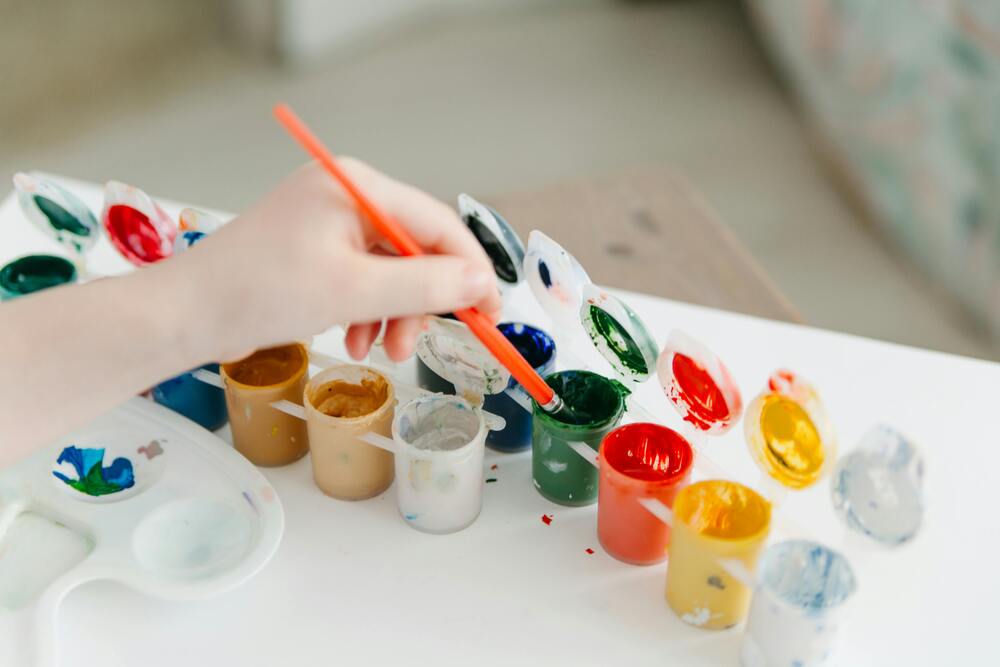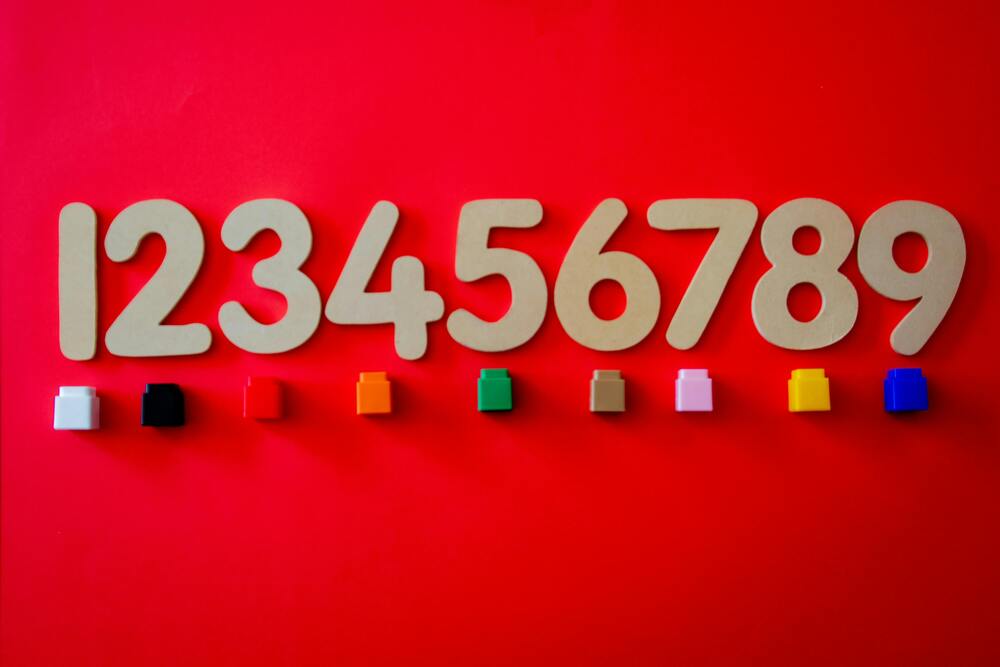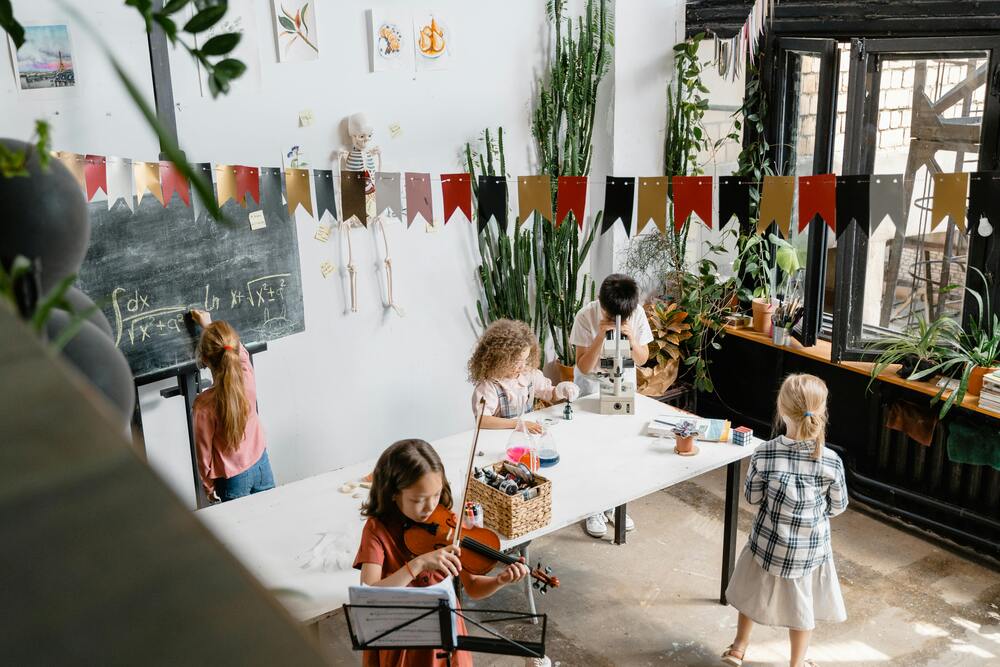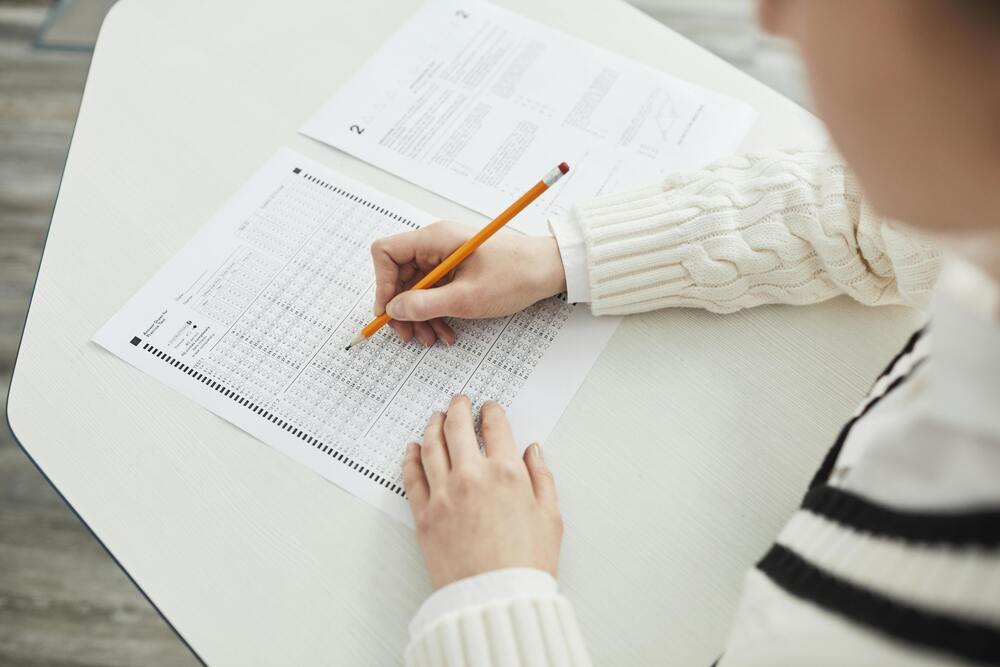Embracing the Montessori method for early childhood education transforms how toddlers and preschoolers engage with the world. Through hands-on activities, it fosters independence, fine motor skills, and a profound love for learning.
This guide shines a spotlight on Montessori activities crafted for the curious minds of preschoolers, aiming to weave the simplicity and depth of Montessori education into their daily lives. From the essence of practical life activities in a Montessori classroom to the joy of sorting, scooping, and exploring, we embark on a journey to articulate how these principles can be seamlessly integrated into your preschool prodigy’s routine.
Whether it’s enhancing fine motor skills or instilling life skills through purposeful play, this step-by-step guide is tailored to help children flourish in a Montessori preschool environment and beyond. Get ready to transform every scoop and sort into foundational building blocks for your child’s future success.
Understanding Montessori

The transformative world of Montessori education is a realm where each child’s potential is revered and cultivated through thoughtfully designed Montessori activities. Within this approach, key principles pave the way for preschoolers to evolve into confident learners:
Foundational Principles:
- Respect for the Child: Treating each child as a unique individual who can lead their learning journey.
- Sensitive Periods: Capitalizing on the times when toddlers and preschoolers are most ready to learn new skills, particularly those involving fine motor coordination and practical life tasks.
- Prepared Environment: Creating a Montessori classroom that entices hands-on learning with materials that promote life skills.
- Auto education: Encouraging self-guided discovery allows children to develop independence through sorting, scooping, and exploring.
- Teacher’s Role: In a Montessori preschool, the teacher supports and facilitates rather than directs, fostering a child’s natural curiosity and desire to learn.
Spotting Preschool Prodigies entails recognizing early talents, often visible through an adeptness at specific Montessori activities. These children might show advanced fine motor skills or an exceptional capacity for immersive, hands-on tasks—key indicators of prodigious qualities. Understanding Montessori lays the groundwork to help children not just sort and scoop but to develop the critical life skills that will underpin their entire educational journey.
Step-by-Step Montessori Activities For Preschool Prodigies
Embarking on the Montessori method starts with creating the right environment and choosing the right activities to spur a child’s development. Here’s how you can set up your space with Montessori-inspired activities:
Step 1: Create A Prepared Environment For A Montessori Preschool
- Start Small: Create a dedicated space in your home and select a corner to introduce Montessori principles.
- Use Shelves: Low, open shelves with easy Montessori activities within reach encourage children to choose and engage independently.
Transitioning to Montessori Practical Life activities:
- Implement simple Montessori-style activities such as pouring and scooping, which are fun and help children develop fine motor skills and concentration.
- Engage preschoolers with hands-on activities like a scavenger hunt or a “mystery bag” game to stimulate their senses and ignite a love of learning.
- Arrange a tray with items from nature, asking the toddler or preschooler to sort and categorize, fostering cognitive development and hands-on learning.
To see more ideas about Montessori for your home, consider creating DIY Montessori materials or finding printables online that align with Montessori nature. These resources can turn everyday household items into valuable learning tools, allowing children to develop practical life skills while indulging in the Montessori method. Remember, the aim is to enable self-directed preschool activities and encourage a lifelong love of learning.
Step 2: Focus On Practical Life Activities For Montessori Preschool Activities
Improve your Montessori preschool with essential practical life activities that lay the foundation for lifelong skills. From the simplicity of pouring to the complexities of food preparation, these hands-on experiences are ingeniously designed for toddlers and preschoolers’ developmental stages.
- Pouring and Transferring:
- Engage tiny hands with the joy of pouring solids and liquids, escalating from beans to water. It’s not just about moving materials from one container to another; it’s an art of precision, patience, and control. These activities fine-tune motor skills and teach children the basics of measurement and conservation.
- Incorporate scooping and sorting exercises, which are not only captivating but also bolster fine motor development and problem-solving abilities.
- Dressing Frames:
- Introduce dressing frames to allow children to master the zips, buttons, and ties that adorn their world. This is not merely about dressing themselves; it’s a path to independence, bolstering their confidence and self-esteem.
- Food Preparation:
- Involve children in simple cooking tasks. Chopping bananas, spreading jam, or peeling oranges equip them with fundamental culinary skills, but more importantly, nurture a sense of responsibility and participation.
By integrating these Montessori activities, preschoolers learn more than just practical life skills. They cultivate independence, competence, and a zest for learning that extends beyond the classroom. These meticulously designed tasks are stepping stones towards forming organized, adept individuals ready to explore and contribute to the world around them.
Step 3: Sensorial Activities
Sensorial activities are crucial to the Montessori method, fostering a love of learning and engaging little minds in an unforgettable sensory voyage. Whether in a Montessori school or implemented as home activities, these simple Montessori tasks foster independent and hands-on learning. Here’s how you can make this happen:
- Sound Bottles: DIY sensory experience using everyday household items. Fill a couple of bottles with items such as beans, rice, or water. Ask your child to identify the distinctive sounds each makes, fostering an astute auditory sense while nurturing the Montessori approach of hands-on, self-directed activities.
- Texture Boards: Use texture boards to evoke children’s fascination with tactile sensations. Attach different items from nature or around the home. The objective is for your toddler or preschooler to identify each item using touch alone. This practical life activity reinforces their fine motor skills.
- Color Grading: Empower your preschooler’s visual acuity with color grading exercises. This fun and simple color-distinguishing activity boosts children’s ability to discern subtle hue differences.
These Montessori-inspired activities help children develop fine motor skills, cognitive growth, and a lifelong love of learning. The beauty of these practical life exercises lies in their simplicity—they are easy to implement yet profoundly impact early childhood development. Thus, with Montessori education, your children learn best.
Step 4: Language And Mathematics

Mastering letters and numbers is a breeze with practical life activities in the Montessori Classroom. Engage your budding geniuses in these Montessori activities that blend fun with learning:
- Sandpaper Letters: A tactile and visual way for preschoolers to learn the alphabet. Children trace the rough sandpaper letters with their fingers, enriching their fine motor skills while learning how each letter feels.
- Moveable Alphabet: Preschoolers combine letters to form words, imprinting early reading skills in their minds. Giving toddlers and preschoolers hands-on control over the creation and manipulation of words!
- Math Materials: Practical tools like beads, spindles, and rods make math concrete and immersive. They help children to sort, count, and understand numbers intuitively, reinforcing motor skills with each scoop or sort.
The key to a Montessori education is to make learning delightful, setting a strong foundation for a lifetime of knowledge.
Step 5: Cultural Activities

Cultural activities are the essence of Montessori learning, enabling children to grasp the vibrant tapestry of our world through direct, enriching experiences. Prepare to ignite a lifelong curiosity and respect for cultural diversity with these Montessori-inspired activities:
- Nature Exploration: Encourage your preschooler to engage with the natural world. Simple Montessori activities such as leaf identification, gardening, or even a mini beast scavenger hunt allow children to develop a deep appreciation for Montessori nature. These hands-on experiences foster a connection with the environment, nurturing a love of learning about the earth and its inhabitants.
- Geography: Introduce preschoolers to the concept of continents, countries, and landscapes through tactile and visually stimulating materials like globe puzzles and map tracing. These activities encourage fine motor skills while expanding their understanding of the world.
- Music and Art: Cultivate an artistic and musical appreciation by integrating Montessori practical life activities that involve art supplies and musical instruments around the home. From crafting simple instruments to exploring different genres of music and art forms, these activities help children develop their fine motor skills and self-expression.
By embracing the Montessori approach, we offer preschoolers a rich tapestry of cultural experiences that entertain and educate, laying the groundwork for a comprehensive early childhood education worldwide.
Step 6: Nurture The Social Environment
The Montessori classroom extends beyond walls and desks to embrace the social fabric of our world. Foster a sense of community, empathy, and collaboration with Montessori activities designed to enhance your preschoolers’ social environment:
- Role Play: Deceptively simple, role-playing games are powerful tools. They help children better understand social roles, responsibilities, and interactions. From doctor playsets to mimicking grocery shopping, roleplay activities enrich fine motor skills and imagination.
- Community Outings: Take learning beyond the home or classroom. Local outings to parks, museums, post offices, and farms allow toddlers and preschoolers to merge learning with real-world experiences, boosting their social skills and independence.
- Collaborative Games: Board games or group tasks that necessitate teamwork nurture soft skills like cooperation, empathy, and negotiation. Collaborative games align perfectly with Montessori education’s practical life skills ethos as children sort, count, and strategize together.
To borrow a Montessori phrase, “Help me do it by myself.” Encourage your child to interact with their peers, promoting a healthy and cooperative social environment.
Step 7: Continuous Assessment

In Montessori methodology, progress isn’t marked by grades but through careful observation and adjustments to meet the child’s changing needs:
- Observation: Closely watch your preschooler during each activity to identify natural aptitudes and areas that require reinforcement. Remember, the child’s learning pace is critical in a Montessori approach.
- Adjustments: Use Montessori-inspired activities to address the child’s unique needs and encourage further exploring topics of interest. Be flexible about their skills and interests. It’s about fulfilling their potential, not ticking off a predefined curriculum.
- Parent-Educator Collaboration: Regular dialogue between parents and educators further refines the learning process. Sharing insights about children’s behavior and enthusiasm towards activities can help create even more relevant experiences.
The beauty of this Montessori-inspired guide lies in its focus on nurturing each child’s innate love of learning rather than fast-tracking academic prowess. By providing engaging, hands-on learning opportunities, we pave the way for a long-lasting passion for discovery. For more tips or inquiries, feel free to contact us for a rich repository of Montessori resources. Be curious, be inspired, and keep on learning.
Leave a Reply